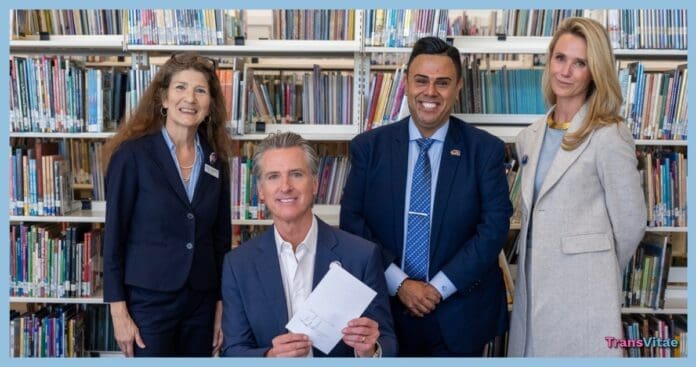California has passed Assembly Bill 727, which mandates that public and private schools (grades 7–12) and higher education institutions print the contact information for an LGBTQ+ youth suicide hotline operated by The Trevor Project on student identification cards beginning July 1, 2026.
Under existing law, schools already must display the number for the 988 Suicide & Crisis Lifeline on student IDs as of July 2025. AB 727 builds on that by adding a specific LGBTQ-focused resource: The Trevor Project hotline (1-866-488-7386) and text line (“START” to 678-678) will appear directly on student cards alongside other crisis resources.
Beyond the ID requirement, AB 727 also expands the role of California’s Superintendent of Public Instruction in communicating statewide resources related to harassment or discrimination. The bill stipulates that the state must now explicitly include resources for students experiencing harassment or bullying based on sexual orientation, gender identity, or gender expression.
Governor Gavin Newsom voiced his support for the measure, emphasizing that “cutting off kids’ access to help is indefensible” and that all youth, regardless of identity, deserve quick access to life-saving support.
What AB 727 Means in Practice
Beginning in mid-2026, students in California schools and colleges will carry IDs with a hotline tailored for LGBTQ+ youth. That gives them one more point of contact at all times, no clicking, no Google, just a printed line they can call or text. Supporters argue that this small design change can have an outsized impact for students who feel isolated or unsafe speaking up.
The bill’s champions assert this is not about political messaging; it is about suicide prevention. LGBTQ+ youth, particularly trans and nonbinary youth, face higher rates of mental health struggles and suicidal ideation compared with their cisgender peers.
By embedding The Trevor Project contact directly into IDs, students carry a visible resource with them by default, which may be crucial in moments when seeking help online or in private feels impossible.
Pushback and Debate
Not everyone is on board. Critics argue that mandating an advocacy-aligned hotline crosses a line by promoting a particular identity framework in schools. Some religious and parental rights groups have voiced objections, claiming the policy compels institutional endorsement of LGBTQ+ messaging without exemptions.
Others raise concerns about oversight and accountability. Once printed, how will administrators ensure the information is current? What if a school misuses or misrepresents the resource? These questions remain largely unaddressed in the bill’s text.
Still, within the bill’s legislative journey, it passed both houses of the state legislature and was enrolled for the governor’s signature in September 2025.
The Bottom Line
TransVitae readers already know how critical access to affirming support is. AB 727 adds one more layer of safety: wherever a student goes, that hotline is right there. It is a structural step, not a cure-all, but it reduces friction in a crisis.
It also signals that state-level policy is catching up to mental health realities. When law recognizes that LGBTQ+ youth deserve visibility, care, and access, it can help reshape campus cultures over time.
Whether you are a student, educator, or advocate, AB 727 offers a powerful tool in crisis prevention. And for many young people, that extra line might just be the difference.


